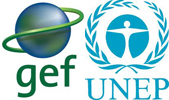With funding from the Global Environment Facility (GEF) and implemented by the UN Environment Programme (UNEP), the project will include the following interventions: improved water management and use efficiency; community-based watershed management; improved terracing, agroforestry and agro-silvo pastoral systems; climate-related research and early warning systems; improved food security; and rangeland management.
 12 October 2012: A project with funding from the Global Environment Facility (GEF) and implemented by the UN Environment Programme (UNEP) will provide assistance to communities that are vulnerable to climate change in Afghanistan, and will build the capacity of Afghan institutions to address climate change risk.
12 October 2012: A project with funding from the Global Environment Facility (GEF) and implemented by the UN Environment Programme (UNEP) will provide assistance to communities that are vulnerable to climate change in Afghanistan, and will build the capacity of Afghan institutions to address climate change risk.
The US$6 million climate change project will focus on four locations in Afghanistan: Badakhshan in the northeast; Balkh in the north; the Koh-e Baba to Bamyan; and Daikundi in the Central Highlands.
Planned project interventions include: improved water management and use efficiency; community-based watershed management; improved terracing, agroforestry and agro-silvo pastoral systems; climate-related research and early warning systems; improved food security; and rangeland management. Education and the development of vocational skills for communities are also a focus of the project.
According to UNEP, Afghanistan has been identified as one of the most climate change vulnerable countries, due to the combination of the potential climate change impacts, and the country’s current limited capacity to respond to these impacts.
Key project partners include the UN Food and Agricultural Organization (FAO), the World Food Programme (WFP), the UN Mission in Afghanistan, the USAID-funded Biodiversity Programme of the Wildlife Conservation Society, as well as local Afghan organizations. [UN Press Release] [UNEP Press Release]